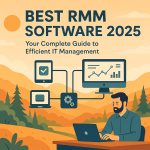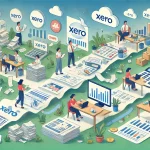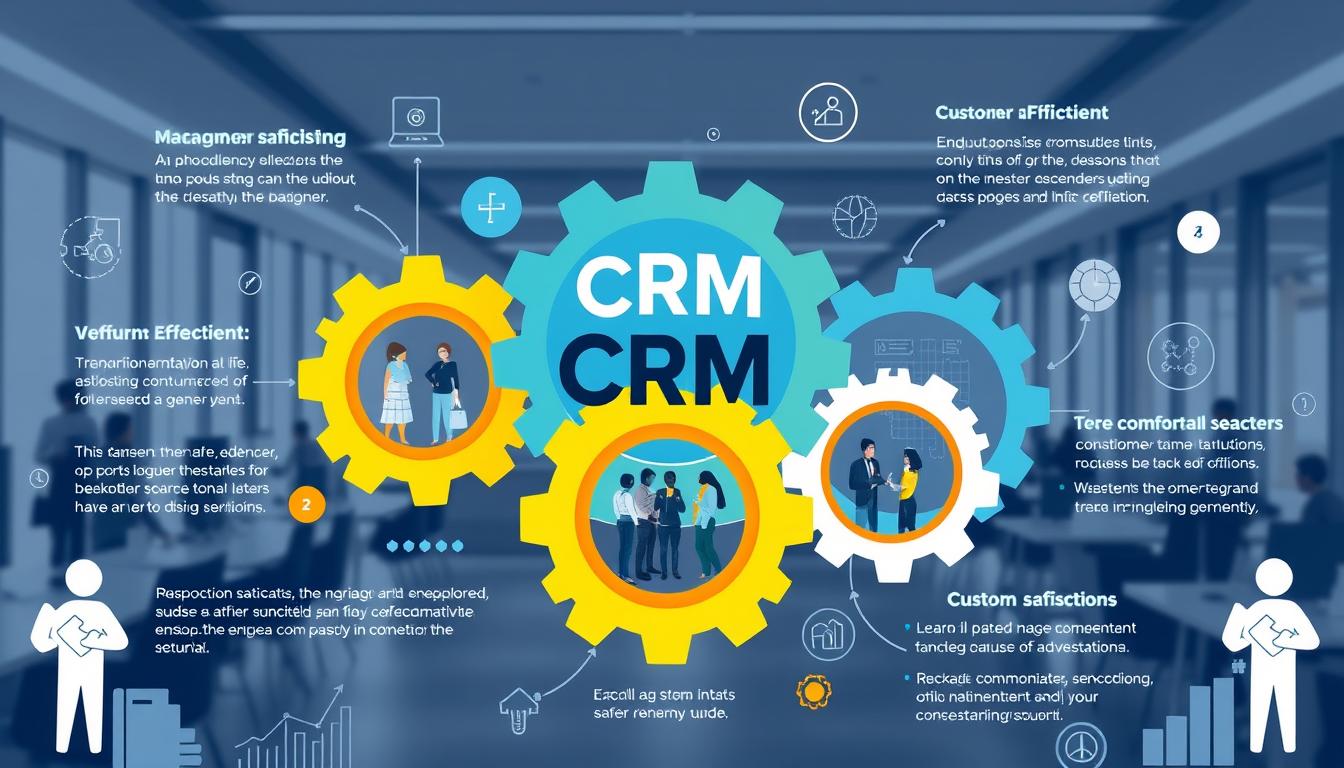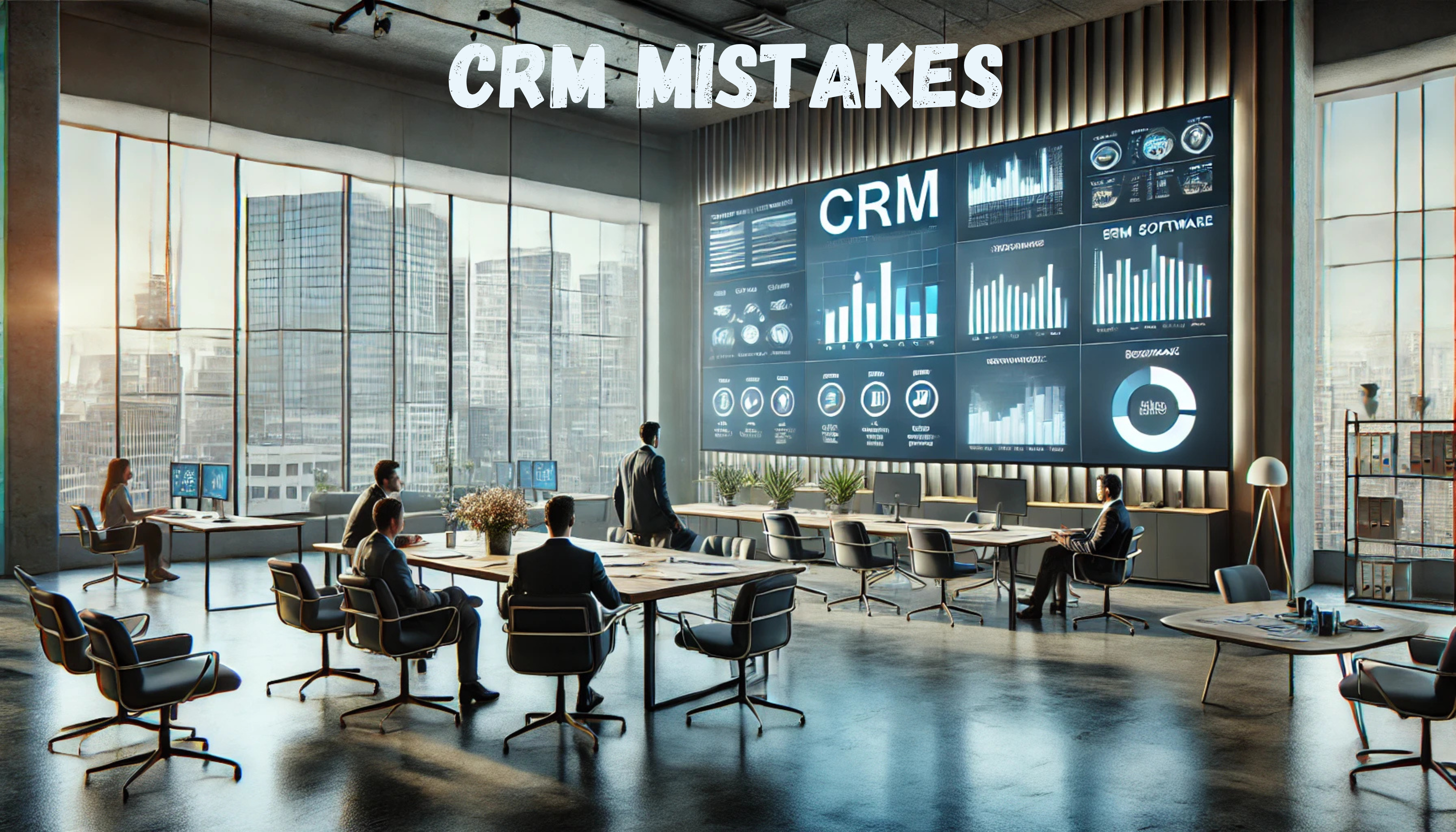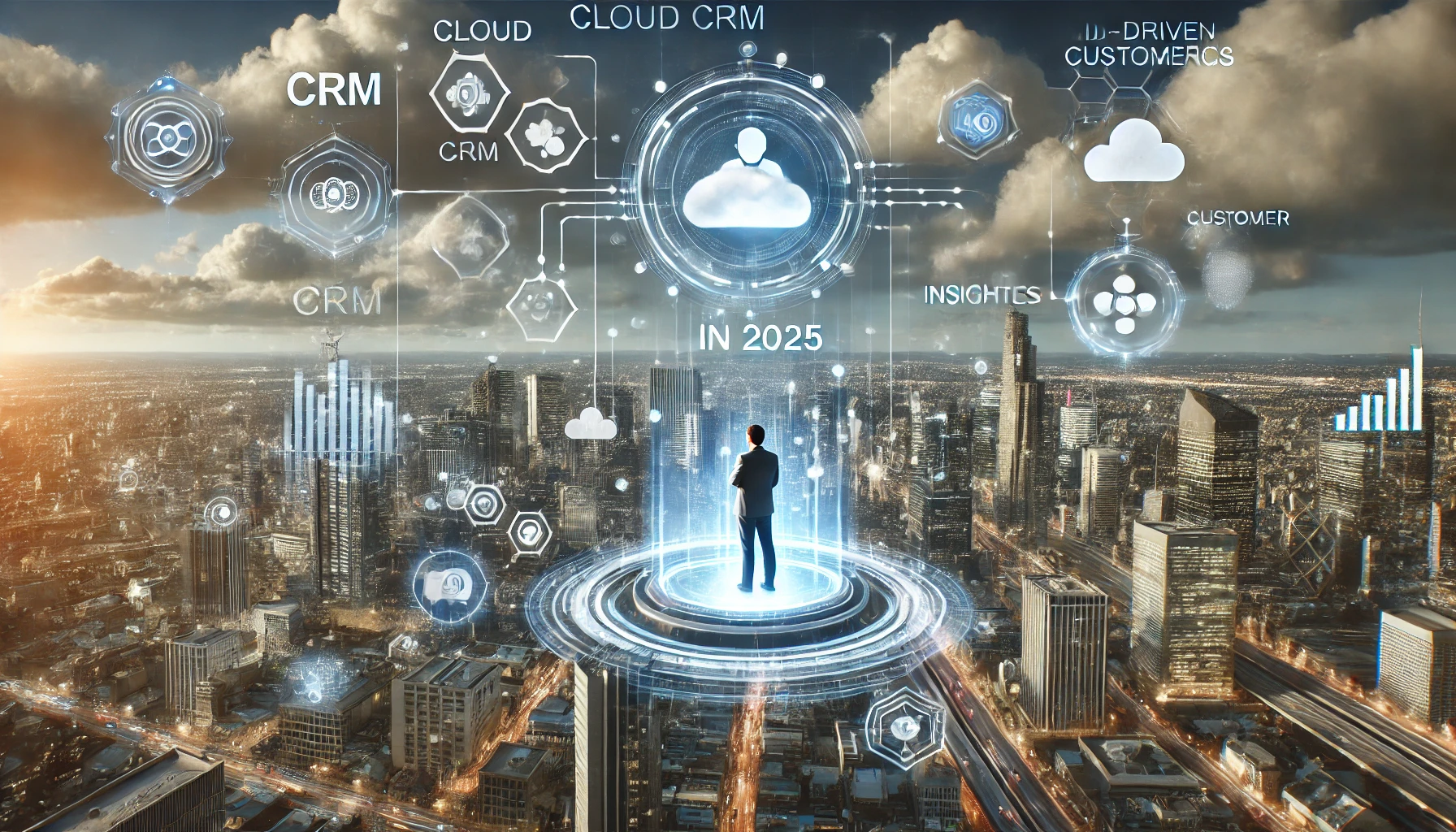3 Types of CRM Software: Choosing the Right CRM System for You
In today’s fast-changing business world, knowing about CRM is key. The right CRM software can help your business build strong customer relationships. It’s important for keeping customers happy and making smart business choices.
We’ll look at three main types of CRM systems: Collaborative, Operational, and Analytical. Each one meets different business needs.
Whether you’re a small startup or a big company, picking the right CRM is vital. It helps with teamwork and using data better. This can make your customer service better and help your business grow.
Key Takeaways
- CRM systems improve customer engagement and retention.
- Understanding the different types of CRM software helps tailor solutions to specific needs.
- Integration features are crucial for effective business operations.
- Collaborative CRMs enhance teamwork across departments.
- Operational CRMs focus on automation to streamline processes.
- Analytical CRMs provide valuable insights from customer data.
Understanding CRM: What You Need to Know
Customer relationship management (CRM) is about making business interactions better with current and future customers. It’s about managing customer data well, making processes smoother, and improving customer experiences. This is key to a good CRM definition.
CRM systems help businesses deal with the complex customer journey. They help gather and analyze customer data. This gives insights for better decisions and services that meet customer needs.
Using CRM systems well can change how businesses interact with customers. It starts from the first contact and goes to keeping customers. There are three main types of CRM:
- Operational CRM makes daily customer interactions better.
- Analytical CRM collects and analyzes customer data for better services.
- Collaborative CRM improves communication among teams for better customer service.
Choosing the right CRM solution is crucial for businesses. It leads to happier customers, more sales, and better teamwork. With the right customer relationship management strategy, companies can build strong relationships and keep customers loyal. This is important for success in a competitive market.
What Are the Key Benefits of CRM Software?
CRM software changes how businesses talk to clients and manage their relationships. It boosts sales team productivity by 32%. It also gives a 360-degree view of the customer, helping in making better relationships and marketing.
Sales automation is key. It leads to a 75% increase in customer focus. CRM solutions offer analytics and dashboards for this. They also work well with other apps, making teams work better by 48%.
Companies see a 46% boost in productivity with CRM and AI. They can easily find information, improving by 53%. This helps them grow by 62%.
CRM also keeps customer data safe, trusted by 85% of users. Keeping customers is key, as it can lead to a 300% increase in lead conversion. It also helps in keeping customers longer by 27% and shortening sales cycles by 24%.
Keeping customers is cheaper than getting new ones. CRM helps focus on keeping customers, which is more profitable.
Different Types of CRM Software Systems
The market has many CRM software systems for different business needs. They all aim to improve customer relationships but excel in unique areas. This is because of their different functionalities.
Operational CRM is a big hit, focusing on making sales processes better and automating marketing. It helps businesses work more efficiently. Salesforce and HubSpot are top examples, offering great tools for managing customer interactions.
Analytical CRM looks at data to understand customer behavior and sales chances. It uses data mining to help make better decisions and boost profits. Zoho CRM is great at this, with features for analyzing performance and predicting sales.
Collaborative CRM is all about teamwork and communication between departments. It makes sure customer service is consistent and strong. Companies looking to improve teamwork often choose this type of CRM.
The table below shows the main points of different CRM categories:
| CRM Category | Focus | Key Features | Popular Platforms | Monthly Cost |
|---|---|---|---|---|
| Operational CRM | Sales & Marketing Automation | Lead management, Email campaigns, Performance tracking | Salesforce, HubSpot | $7 – $1200 |
| Analytical CRM | Data Analysis | Sales forecasting, Customer segmentation, Reporting | Zoho CRM | $22 – $445 |
| Collaborative CRM | Team Communication | Shared databases, Cross-department tools, Task management | Copper | $50 – $100 |
Knowing about these CRM categories helps businesses find the right fit for their goals. Moving on, we’ll explore the many types of CRM, focusing on these three main ones.
3 types of crm systems
Knowing the different types of CRM is key for businesses wanting to do better. There are mainly three types: operational, analytical, and collaborative CRM. Each one is made for a specific job in a company.
Overview of the Three Main Types
Here’s what each type does:
- Operational CRM helps with sales and marketing.
- Analytical CRM uses customer data for insights.
- Collaborative CRM makes teams work together better.
Collaborative CRM
Collaborative CRM connects teams by sharing important customer info. It has tools for managing contacts and channels. This leads to better communication and happier customers.
Operational CRM
Operational CRM automates business tasks. It includes marketing, sales, and customer service tools. It makes teams more efficient by organizing how they talk to customers.
Analytical CRM
Analytical CRM deals with customer data. It helps teams understand what customers like. This way, businesses can plan better for the future.
| Type of CRM | Main Function | Key Features |
|---|---|---|
| Operational CRM | Streamline business processes | Marketing automation, sales automation, customer service |
| Analytical CRM | Analyze customer data | Data capture, storage, analytics |
| Collaborative CRM | Enhance team communication | Contact management, channel management |
Collaborative CRM Systems and Their Benefits
Collaborative CRM systems help teams work better together. They make sure everyone shares information well. This leads to happier customers and smoother business processes.
Key Features of Collaborative CRM
Collaborative CRM has special features for businesses. These features help with sharing information and managing data well. Some key features are:
- Unified Data Access: Everyone can easily share and access customer info.
- Interaction Management: It handles all customer interactions, so nothing gets missed.
- Document Management: Important documents are stored in one place for easy access.
- Real-Time Access: It gives teams quick insights for fast decisions.
- Integration Capabilities: It works well with other apps for smoother workflows.
Ideal Use Cases for Collaborative CRM
Collaborative CRM shines in certain situations. It’s great for teams with different departments. Here are some examples:
- Customer Service Enhancement: Faster and better issue responses thanks to shared histories.
- Sales Pipeline Management: Better customer relationships lead to more sales.
- Marketing Campaign Coordination: It helps teams work together on marketing plans.
- Customer Retention Strategies: Detailed profiles help keep customers coming back.
| CRM System | Key Features | Ideal Use Case |
|---|---|---|
| Sage CRM | Integrated communication and task management | Sales and service teams collaboration |
| Microsoft Dynamics 365 | AI decision-making support and reporting | Customer service across multiple channels |
| Copper | Seamless integration with Google Workspace | Streamlining project management and documentation |
| SuperOffice CRM | Combines analytical and operational features | Used across all departments for improved communication |
Operational CRM: Streamlining Business Processes
Operational CRM is key for making daily work better in sales, marketing, and customer service. It brings together customer talks and automates simple tasks. This makes work more efficient, boosts productivity, and makes customers happier.
Automation Features in Operational CRM
Operational CRM shines with its CRM automation features. These features cut down on manual work, letting staff focus on big plans. Key features include:
- Automated sales processes that make lead management and follow-ups easier.
- Marketing automation for targeted campaigns with quick analytics.
- Service automation for starting customer support talks and handling service tickets.
Tools like Salesforce and HubSpot CRM make these tasks better, saving time. This leads to more sales as staff can focus on talking to customers.
How Operational CRM Enhances Customer Relationships
The main aim of operational CRM is to make customer relationships better. It manages the whole customer journey well, helping businesses give top-notch experiences. Operational CRM does this by:
- Keeping all customer info in one place for sales teams.
- Offering personalized service with insights from past talks.
- Quickly answering customer questions and problems.
Operational CRM builds loyalty by making customer interactions better across all points and channels. Companies using it see better work flow and stronger bonds with their clients.
Analytical CRM: Gaining Insights from Customer Data
Analytical CRM digs deep into data to find important customer insights. It’s key for making decisions based on data. Companies use it to make their marketing better and more effective.
One big plus of analytical CRM is its customer segmentation feature. It lets businesses make marketing plans for different groups. This leads to better campaigns. Predictive analytics help guess what customers will do next, guiding marketing plans.
CRM tools help manage campaigns with data insights. This makes future campaigns sharper and more likely to keep customers. Data mining and pattern recognition help understand customer habits, leading to personalized marketing.
Also, analytical CRM’s reporting and visualization tools give important insights. These insights help make better decisions and make operations smoother. In a competitive market, analytical CRM gives businesses an edge by helping them stay ahead of changes.
To get the most out of analytical CRM, consider things like data integration and user-friendliness. Combining different CRM systems gives a full view, helping businesses grow and stay ahead in a data-driven world.
Choosing the Right CRM System for Your Business
Finding the right CRM system is a big decision. You need to think about what features you need and how much you can spend. Every business is different, so it’s key to find CRM features that fit your needs. These features can really help your business run better and build stronger customer relationships.
Identifying Must-Have Features
When picking a CRM, look for these important features:
- Contact Management: CRM will help keep customer info organized.
- Interaction Tracking: Keeps conversations with customers smooth across all channels.
- Lead Management: Helps move potential customers through the sales process.
- Email Integration: Lets teams handle emails right in the CRM, making work easier.
- Workflow Automation: Makes tasks simpler, so teams can focus on people and deals.
- Reporting and Analytics: Gives insights to help make better decisions.
- Mobile Access: Lets teams work with data from anywhere, keeping everyone connected.
- Third-Party Integrations: Adds more to the CRM and stops data from getting lost.
Aligning Your Budget with Your CRM Needs
When looking at CRMs, make sure your budget matches your needs. Prices can change a lot, from $10 to thousands per user. Think about what you need to spend, like:
| CRM Type | Estimated Price | Key Features |
|---|---|---|
| Salesforce CRM | $25 – $300/user/month | Comprehensive lead management, advanced analytics, and strong integration capabilities |
| Sage CRM | $40 – $150/user/month | Contact management, email integration, workflow automation |
| Keap | $79 – $199/month | Lead nurturing, marketing automation tools, and e-commerce integration |
| monday Sales CRM | $10 – $30/user/month | User-friendly interface, reporting features, and third-party integrations |
Many CRMs offer free trials or versions to help you choose. Don’t skip setting clear goals when picking a CRM. The right CRM can bring big benefits and make your business more efficient in the long run.
different types of crm :Conclusion
Knowing the different types of CRM systems is key for businesses. They include Operational, Analytical, and Collaborative CRM. Each one has its own role. Operational CRM automates important tasks. Analytical CRM analyzes data for better decisions. Collaborative CRM helps teams talk better.
Choosing the right CRM is crucial. Companies need to think about what they need and how much they can spend. They should also consider how big their company is. This helps pick a CRM that fits their goals well.
The world of CRM is always changing. New trends like AI and mobile access are important. Tools like Kylas CRM are easy to use and meet many needs. Getting the right CRM helps businesses work better and keep customers happy.
FAQ
Q: What are the 3 types of CRM software available?
A: The three types of CRM software are operational CRM systems, analytical CRM systems, and strategic CRM systems. Each type serves a different purpose in managing customer relationships and improving customer experience.
Q: How do I choose the best CRM for my business?
A: To choose the best CRM for your business, consider your specific needs such as customer interaction, data analysis, and strategic planning. Evaluate different CRM platforms, their features, and how they align with your business goals.
Q: What should I look for in a CRM?
A: When choosing a CRM, look for features such as ease of use, scalability, integration with existing tools, strong customer support, and the ability to provide insights into customer data. These features will help determine which CRM is right for your business.
Q: How can an operational CRM system benefit my business?
A: An operational CRM system can benefit your business by streamlining and simplifying customer interactions, automating sales, marketing, and service processes, and improving the overall efficiency of customer relationship management.
Q: What is the role of an analytical CRM system?
A: An analytical CRM system focuses on analyzing customer data to provide insights into customer behavior, preferences, and trends. This helps businesses make informed decisions to enhance customer retention and satisfaction.
Q: Why is strategic CRM important for customer relationship management?
A: Strategic CRM is important because it helps businesses align their customer relationship strategies with broader business objectives. It focuses on long-term customer engagement and loyalty, ensuring sustained growth and customer satisfaction.
Q: Can a small business benefit from using a CRM?
A: Yes, a small business can benefit significantly from using a CRM as it helps in organizing customer data, automating repetitive tasks, and providing insights that enhance customer relationships and drive growth.
Q: What type of CRM is best for enhancing customer experience?
A: The best type of CRM for enhancing customer experience is typically an operational CRM, as it focuses on managing customer interactions and ensuring efficient service delivery, which directly impacts customer satisfaction.
Q: Are there free CRM options available?
A: Yes, there are free CRM options available, which can be a great starting point for small businesses or those new to CRM. These options often offer basic features that can be upgraded as business needs grow.



